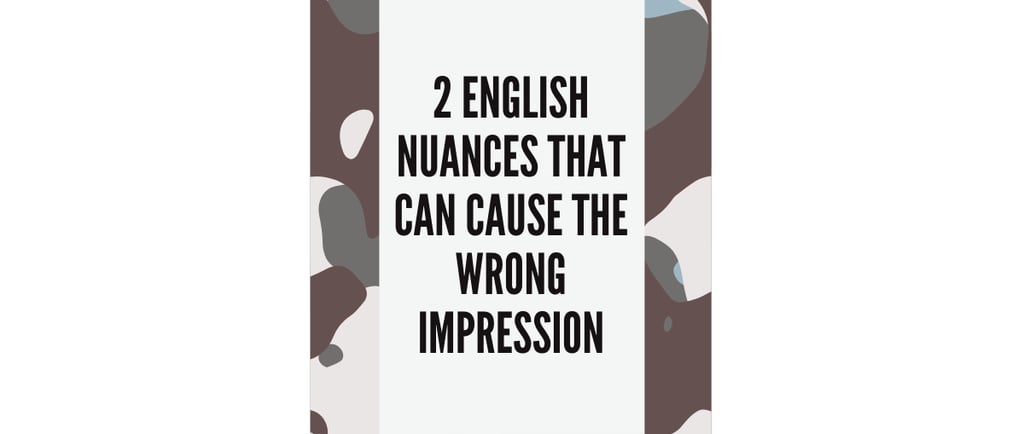2 English Languange Nuances
In this post, I present two examples of word usages that may appear right for non-native speakers but can cause discomfort because of their tone.
ENGLISH LANGUAGE
Dr. Julia Kirst
2 min read


The two examples below come from recent conversations with clients. One of them said, "I will fasten the process" and this took me aback. Until I understood they meant "I will speed up the process"! The other said, "I will see" (information that I had shared). Again, it took me a second or two to undertand that they meant "I will take a look."
Let's check why these minor mistakes can be the source of discomfort when a native and a non-native speaker are communicating! The phrase in bold is the correct one. ;)
1. "I will fasten the process" vs. "I will speed up the process"
At first glance, fasten might seem like a good choice. It has the word “fast” in it, and many dictionaries list “fasten” as a verb. But in English, fasten means to attach or secure something, like a seatbelt or a button. It has nothing to do with time or speed.
So when you say “I will fasten the process,” a native speaker might pause and think, Wait, are you going to tie the process down? It sounds odd and unclear.
Instead, use “speed up” or “accelerate” to talk about doing something faster.
✅ “We’re behind schedule, so I’ll speed up the process.”
✅ “We need to accelerate production to meet demand.”
2. "I will see" vs. "I will check" or "I will take a look"
Saying “I will see” is grammatically correct—but in English, it’s very vague. It often implies that you’ll think about it later or that you’re undecided. It can also be used to express doubt.
For example:
“I will see if I have time.” → This means you’re not sure, and maybe you won’t.
"I will see if I will let you go to the party. Maybe after you did all your chores." (Can you picture the face of the parent saying that?)
If you want to express that you’re going to verify something or look into a problem, then check or take a look is much more natural.
✅ “I will check the report and get back to you.”
✅ “Let me take a look at that file.”
Why This Matters
These small word choices can change the way people not just understand you but also feel about you! For example, when the prospective client said "I will see" (the document I had sent), he sounded skeptical to me. That felt a bit rude to me. This reaction didn't make sense in the context of our conversation. Luckily, I knew the person's native language and realized he was making a direct translation. I could let it go because I understood the source of the mistake. But a native speaker may not know your native language. That makes it difficult to understand what you actually meant - in this example, NOT skepticism and rudeness!
Keep listening closely to what native speakers say in real conversations and as time passes these nuances will become more and more familiar. :)
